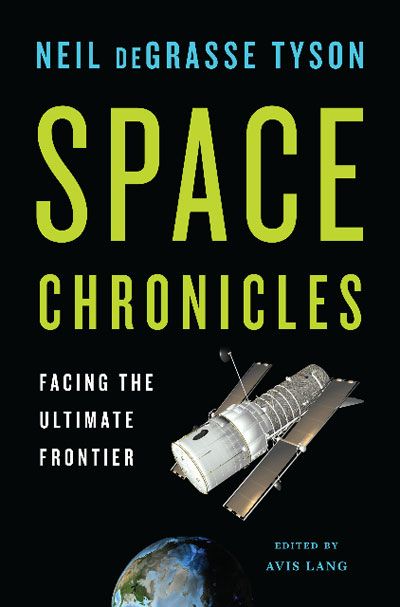The only thing that's stuck from high school Chemistry (and Physics and Biology and most of math combined really) is that my teacher was in love with my friend Meg, obsessed with Mercury, and that I once made up and turned in a song about the periodic table of elements in lieu of not having them memorized, as I was busy at the time writing down the majority of what Ms. C had to say about both Mercury and Megan on a scrap of looseleaf paper I still have and which includes what must be the most outlandish, technically appropriate assortment of things ever said, in a classroom anyway, about the properties of metals and of 16-year-old girls, such as "You should thank God every night before you go to bed for Mercury. Get down on your hands and knees!" What made collecting Ms. C's quotes so fun and irresistible, apart from the inherent anthropological value, was forming a hypothesis of sorts on which lines about Mercury were veiled exasperations about Megan and, likewise, which quotes about Megan were Ms. C's way of unabashedly or scientifically waxing poetic on the vastness and the beauty of the universe. Neither of which helps us here, except to say that vastness and our contemplation of it (as a species, not as frowzy, closeted high school science teachers) is at the heart, and thus made visible, brought down to Earth and shown to echo our most human fears and curiosities in Neil DeGrasse Tyson's new collection of short essays, Space Chronicles, reminding us that all the "ifs and whens" of exploration (habitable exoplanets; interstellar communication via radio waves; extraterrestrial lifeforms as imagined to destroy us), in vicariously manifesting human fears and wants, pertain at least as much to our own lives as whatever can be said to breathe in deep beyond them. Yes, if you thought my curiosities about the mysteries of the universe weren't satiated back in high school, they're even further from home now, teeming like a spree of killer asteroids blooming fast behind the others in their orbit round the stratosphere, yearning to collide and turn back into dust and particles. "Home" being a metaphor for intellectual complacency; "asteroids" being my excitement about what I learned about asteroids after reading Tyson's book, which does a better job than I of, like a cocktail, shaking up and pointing out what poetry and science have in common, with brief glimmers of insight as factual, relatable, and, frankly, difficult not to take slightly personally as "Every planet continues to accrete, every day of its life, although at a significantly lower rate than when it first formed," and "abstract measurements of chemical properties do not feed the imagination... Only through images that capture surface detail do our minds transform exoplanets into 'worlds'," and "Time for a reality check." (That last one less an insight than an order. By the way, just for fun, try incorporating "Time for a reality check" in conversation round the dinner table tonight. I dare you.) You may not hear the image, but the metaphors are there and, like those asteroids, everywhere in Space Chronicles, along with Tyson's hop-and-a-skip style of making sense out of and quips about the political history and rhetorically over-the-moon, mostly beleaguered science of our nation's and the world's space programs (see Barack Obama's speech on space policy delivered April, 2010, oppositionally reported as "Obama Sets Sights On Mars," and Obama Kills Space Program"), as if shining a light on such vacuous misunderstandings were the most natural thing in the world. Just like putting on a sun and moon-bedazzled vest, loosening that top button, and docking on some prime meteorite by the bar. "Bar" being a metaphor for sex, I think. And maybe it is... not so difficult, I mean. Did you know, for instance, that anyone can help detect the frequencies of radio waves from all over the galaxy, with an app?! I'm going back to read that manual that came with my George Foreman grill. If a laptop can evaluate possible alien life forms, who knows what a lean, mean, fat-reducing machine is capable of.
Tuesday, August 14, 2012
TO-READ l Space Chronicles
The only thing that's stuck from high school Chemistry (and Physics and Biology and most of math combined really) is that my teacher was in love with my friend Meg, obsessed with Mercury, and that I once made up and turned in a song about the periodic table of elements in lieu of not having them memorized, as I was busy at the time writing down the majority of what Ms. C had to say about both Mercury and Megan on a scrap of looseleaf paper I still have and which includes what must be the most outlandish, technically appropriate assortment of things ever said, in a classroom anyway, about the properties of metals and of 16-year-old girls, such as "You should thank God every night before you go to bed for Mercury. Get down on your hands and knees!" What made collecting Ms. C's quotes so fun and irresistible, apart from the inherent anthropological value, was forming a hypothesis of sorts on which lines about Mercury were veiled exasperations about Megan and, likewise, which quotes about Megan were Ms. C's way of unabashedly or scientifically waxing poetic on the vastness and the beauty of the universe. Neither of which helps us here, except to say that vastness and our contemplation of it (as a species, not as frowzy, closeted high school science teachers) is at the heart, and thus made visible, brought down to Earth and shown to echo our most human fears and curiosities in Neil DeGrasse Tyson's new collection of short essays, Space Chronicles, reminding us that all the "ifs and whens" of exploration (habitable exoplanets; interstellar communication via radio waves; extraterrestrial lifeforms as imagined to destroy us), in vicariously manifesting human fears and wants, pertain at least as much to our own lives as whatever can be said to breathe in deep beyond them. Yes, if you thought my curiosities about the mysteries of the universe weren't satiated back in high school, they're even further from home now, teeming like a spree of killer asteroids blooming fast behind the others in their orbit round the stratosphere, yearning to collide and turn back into dust and particles. "Home" being a metaphor for intellectual complacency; "asteroids" being my excitement about what I learned about asteroids after reading Tyson's book, which does a better job than I of, like a cocktail, shaking up and pointing out what poetry and science have in common, with brief glimmers of insight as factual, relatable, and, frankly, difficult not to take slightly personally as "Every planet continues to accrete, every day of its life, although at a significantly lower rate than when it first formed," and "abstract measurements of chemical properties do not feed the imagination... Only through images that capture surface detail do our minds transform exoplanets into 'worlds'," and "Time for a reality check." (That last one less an insight than an order. By the way, just for fun, try incorporating "Time for a reality check" in conversation round the dinner table tonight. I dare you.) You may not hear the image, but the metaphors are there and, like those asteroids, everywhere in Space Chronicles, along with Tyson's hop-and-a-skip style of making sense out of and quips about the political history and rhetorically over-the-moon, mostly beleaguered science of our nation's and the world's space programs (see Barack Obama's speech on space policy delivered April, 2010, oppositionally reported as "Obama Sets Sights On Mars," and Obama Kills Space Program"), as if shining a light on such vacuous misunderstandings were the most natural thing in the world. Just like putting on a sun and moon-bedazzled vest, loosening that top button, and docking on some prime meteorite by the bar. "Bar" being a metaphor for sex, I think. And maybe it is... not so difficult, I mean. Did you know, for instance, that anyone can help detect the frequencies of radio waves from all over the galaxy, with an app?! I'm going back to read that manual that came with my George Foreman grill. If a laptop can evaluate possible alien life forms, who knows what a lean, mean, fat-reducing machine is capable of.
Subscribe to:
Post Comments (Atom)



No comments:
Post a Comment